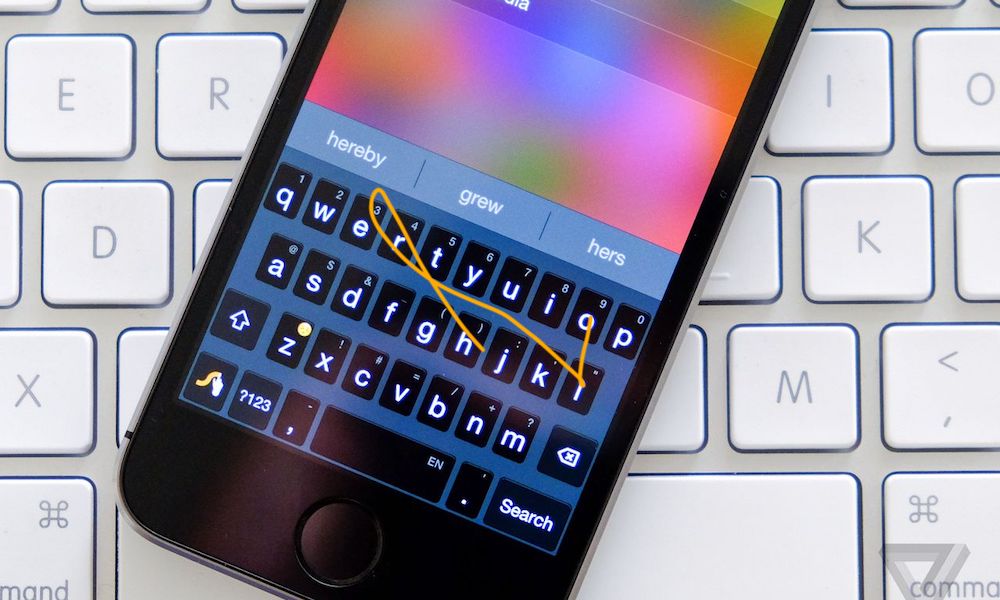Apple’s Greatest ‘Borrowed’ Features Are Wreaking Havoc in the App Store
 Credit: The Verge
Credit: The VergeToggle Dark Mode
Where does Apple get the ideas for its new features? It may borrow quite a few of them from developers in the App Store.
Apple incorporating features originally found in third-party apps is a well-documented trend. But this week, a Washington Post article took a deeper look at some of the implications of it.
Apple’s Borrowed Ideas
The Washington Post’s Reed Albergotti uses “Clue” as the first example. In the absence of any period-tracking features for women in Apple’s Health platform, a slew of third-party apps, including Clue, have filled the gap. But in iOS 13, Apple is going to introduce several fertility and period tracking features into its Health app.
While it isn’t clear what will happen to Clue and other apps like it, similar instances in the past have lead to apps ultimately meeting their demise.
Back in 2013, for example, Apple added an official flashlight to iOS making a plethora of third-party flashlight apps obsolete. The Measure app and even Animoji were once ideas explored by third-party developers first.
Apple is also adding the ability to use an iPad as a secondary Mac display, putting pressure on existing firms like Luna Display and Duet Display. And, with a baked-in swipe-to-text keyboard, it looks like the writing may be on the wall for apps like Swiftkey.
Having an app or feature idea copied by Apple is apparently so prevalent that it has a name: “Getting Sherlocked.” It refers to Apple’s Sherlock desktop search tool, a precursor to Spotlight. But Sherlock’s functionality already existed in a third-party app called Watson.
App Unfairness
At its core, “borrowing” ideas from another company or developer is pretty common in the tech industry. Late Apple cofounder and CEO Steve Jobs even once said that Apple has “always been shameless about stealing great ideas.”
But the bigger issue here is not that Apple copies app ideas, it’s that the Cupertino tech giant can render those third-party apps obsolete at a drop of a hat.
That’s true because first-party Apple features or apps typically have access to tighter integration than third-party apps. Just look at Spotify and Apple Music. The former streaming platform can’t currently be controlled via Siri, while Apple’s can.
Apple may also have an unfair position as the creators and maintainers of the App Store. The company has full access to a treasure trove of deep insights into app popularity. It could use that data to figure out which apps or features users want and debut its own solutions based on them.
It’s also worth noting that Apple takes a cut of any in-app purchases made on the App Store.
A former App Review team leader made it clear that Apple doesn’t “borrow” ideas from apps during the review process. That presumably prevents the company from denying an app and then stealing its idea.
Developers could, conceivably, avoid the App Store if they find this unfair. But doing so could doom their app from the start. According to WaPo, Apple is responsible for a staggering 71 percent of all app-generated revenue in the U.S.
Antitrust Implications
The WaPo story comes at a time when Apple and other tech giants are under increasing scrutiny for allegedly unfair practices.
Many political figures have called for Apple and other tech giants to be broken up. The Justice Department is also reviewing tech giants like Apple for possible violations of antitrust regulations.
Copying ideas has gotten tech titans into trouble before. As WaPo points out, a coalition of state governments and the DoJ sued Microsoft for copying the Netscape Web browser and creating its own: Internet Explorer.
And Sen. Elizabeth Warren targeted Apple in an interview with The Verge earlier this year. “Either they run the platform or they play in the store. They don’t get to do both at the same time,” she told the publication.






